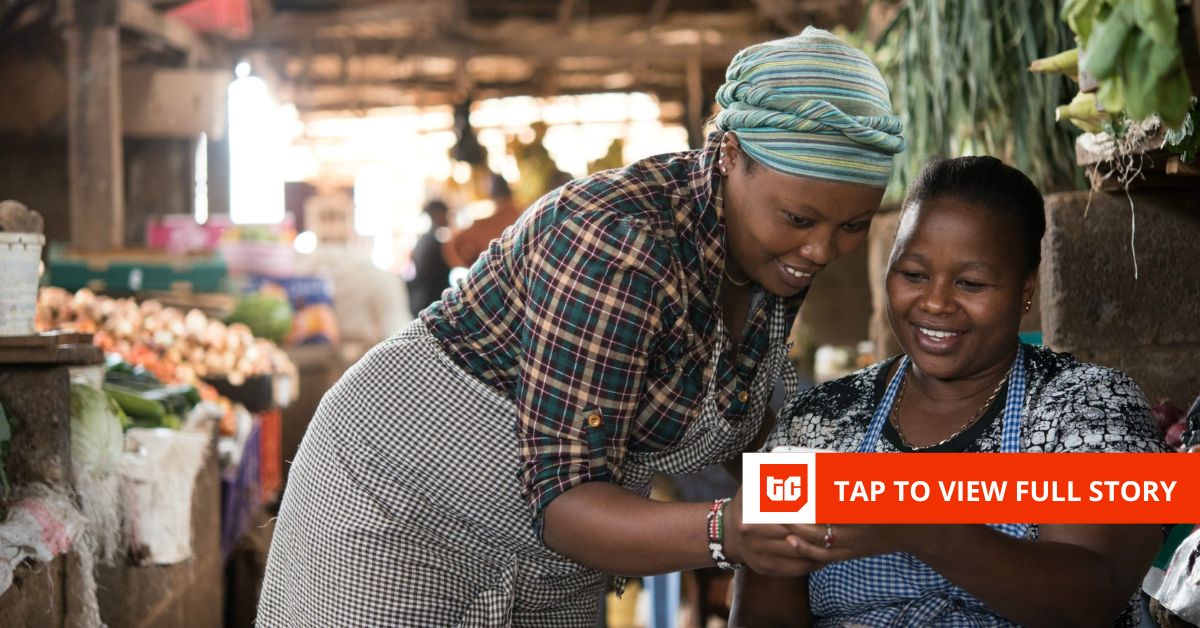Globally, headlines warn that artificial intelligence (AI) will soon put financial advisors out of work. Deloitte, for instance, predicts that by 2027, digital platforms could become the main source of advice for retail investors, with adoption projected to reach 80% by 2028.
But in Africa, that framing misses the point. Many people here have never had access to a financial advisor in the first place, with only 27% of adults in Sub-Saharan Africa having basic financial knowledge. Advice has long been seen as a service for the wealthy, not the everyday saver or small business owner. Our problem is not about replacement but about whether technology can finally make financial guidance accessible to everyone.
The access gap
According to the World Bank, only 49% of adults in Sub-Saharan Africa had a bank account in 2022. The EFInA Access to Financial Services in Nigeria (A2F) 2023 Survey shows that 64% of adults are financially included. But even among those banked, most have never interacted with a professional advisor.
For millions of Africans, decisions about saving, investing, or borrowing are influenced not by data-driven strategies but by word of mouth, informal lending groups, and trial and error. That reality makes the promise of technology even more important and more complicated.
What technology delivers
Fintech companies across the continent are showing how digital tools can fill the gap. PiggyVest and Cowrywise have opened formal saving channels to millions of first-time savers — PiggyVest alone has over 7 million users, and with each saving an average of ₦25,000 every second as of 2024. Cowrywise allows users to start saving with as little as ₦1,000.
On the investment side, Bamboo and Risevest give retail investors access to global markets. Bamboo now has over 500,000 users, most of whom are completely new to stock trading, while Risevest has processed US$42 million in investor payouts.
At the infrastructure level, TymeBank in South Africa provides digital support to 10 million customers, and Safaricom’s M-Pesa handled 37.15 billion transactions worth $296.8 billion in 2024, with machine learning tools actively preventing fraud.
These services have two big advantages. First, they scale: a single platform can reach millions at low cost, something human advisors cannot do. Second, they are less prone to conflicts of interest. Where traditional advisors may push products that earn commissions, algorithms can, in theory, provide objective recommendations.
For the first time, a young entrepreneur or a farmer can access structured financial guidance with a smartphone.
The question of trust
Scale is not the same as confidence. Many Africans remain wary of financial institutions. Hidden charges, poor service, and inconsistent regulation have left scars. Asking people who do not fully trust banks to trust an algorithm instead is a steep challenge.
In a nutshell, trust is the real currency in African finance. This is why ajo or esusu (rotational savings groups) remain popular. They are built not on technology, but on relationships, accountability, and shared risk. Technology must learn that success will depend on more than code. It will require transparency, education, and cultural sensitivity.
McKinsey analysis shows that African fintechs have made measurable progress, with fintech revenues estimated at $4–6 billion in 2020 and penetration levels of 3–5 percent (excluding South Africa). But that can increase significantly if fintechs and regulators make trust-building central; otherwise, technology risks becoming another barrier instead of a bridge.
The human advantage
Even the most advanced digital platform cannot understand the emotional and cultural dimensions of financial decisions. An app may suggest the mathematically “best” investment, but it will not know if a trader somewhere in Nigeria is anxious about losing capital, or if a family in Senegal is prioritising school fees over shares.
Human advisors add value precisely where technology falls short: empathy, reassurance, and guidance in moments of uncertainty. In markets where volatility and policy shifts are constant, this human touch cannot be coded into an algorithm.
Policy: Catching up with innovation
Regulators across Africa have moved quickly on digital lending, particularly in Nigeria, as seen with the Federal Competition and Consumer Protection Commission (FCCPC). But robo-advisors and digital investment platforms often operate in a grey zone.
Without clear rules, Africa risks a two-tier system: low-cost automated advice for the poor, and high-touch, personalised advice for the wealthy. Transparent frameworks on fairness, bias, and accountability are essential if technology is to expand access rather than reinforce inequality.
What comes next
The future of financial advice in Africa will not be framed as man versus machine. It will be man and machine, each doing what they do best. Technology will handle scale, automation, and data-driven insights. Humans will provide empathy, trust, and cultural understanding. Regulators will need to set guardrails so both can coexist responsibly.
AI may be replacing advisors elsewhere. But in Africa, the bigger story is different: millions can access financial guidance that was once off-limits.
The challenge for fintechs and policymakers is to ensure that this access comes with fairness and trust. If they succeed, technology won’t kill advisory jobs. It will democratise advice and put financial guidance in the hands of everyone, not just the privileged few.
____
Yomi Ogunleye is the co-founder and CTO of HerVest, an inclusive fintech. He has over 13 years of experience in product and engineering across financial and technology sectors.
Mark your calendars! Moonshot by is back in Lagos on October 15–16! Meet and learn from Africa’s top founders, creatives & tech leaders for 2 days of keynotes, mixers & future-forward ideas. Get your tickets now: moonshot..com









